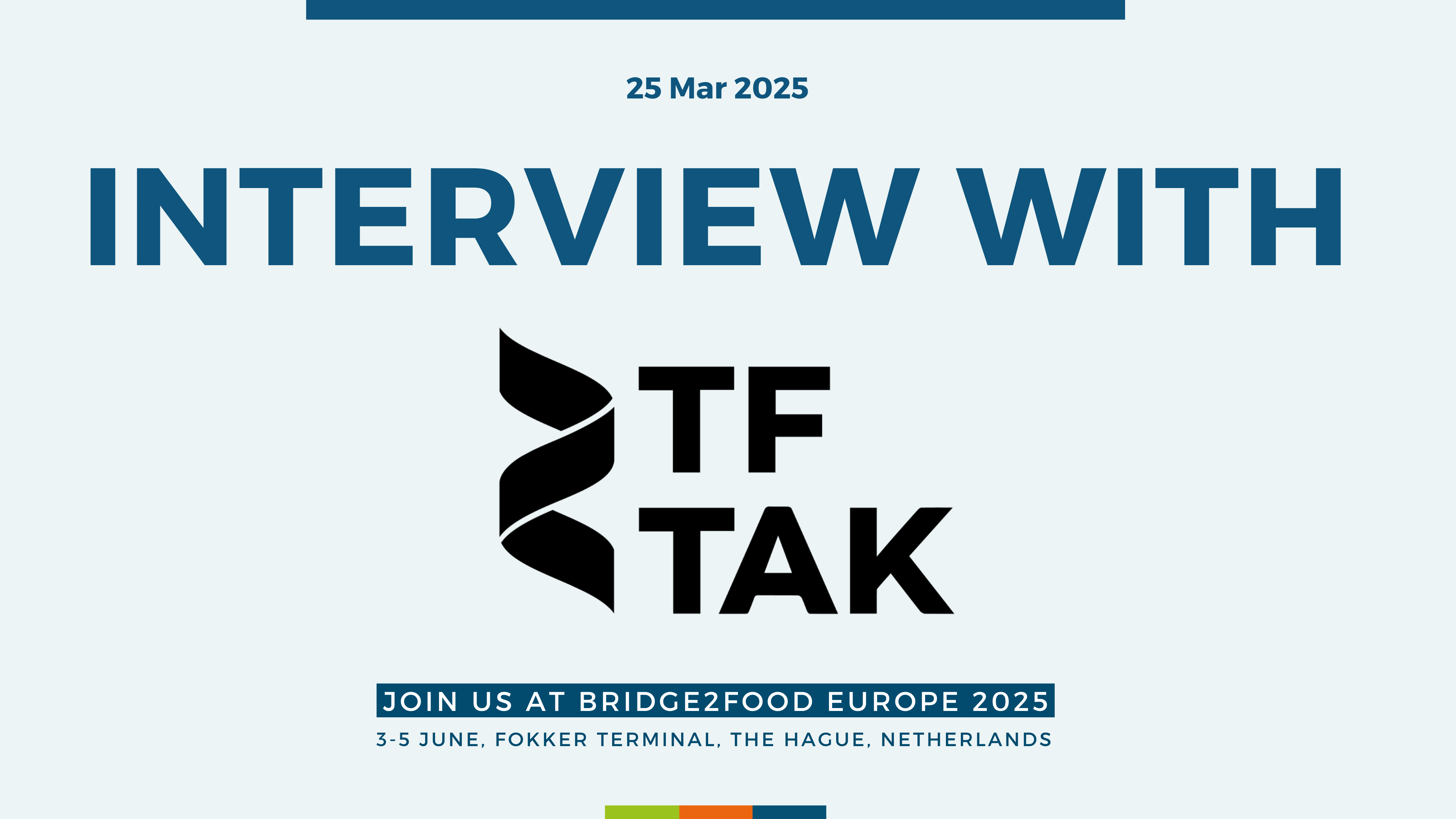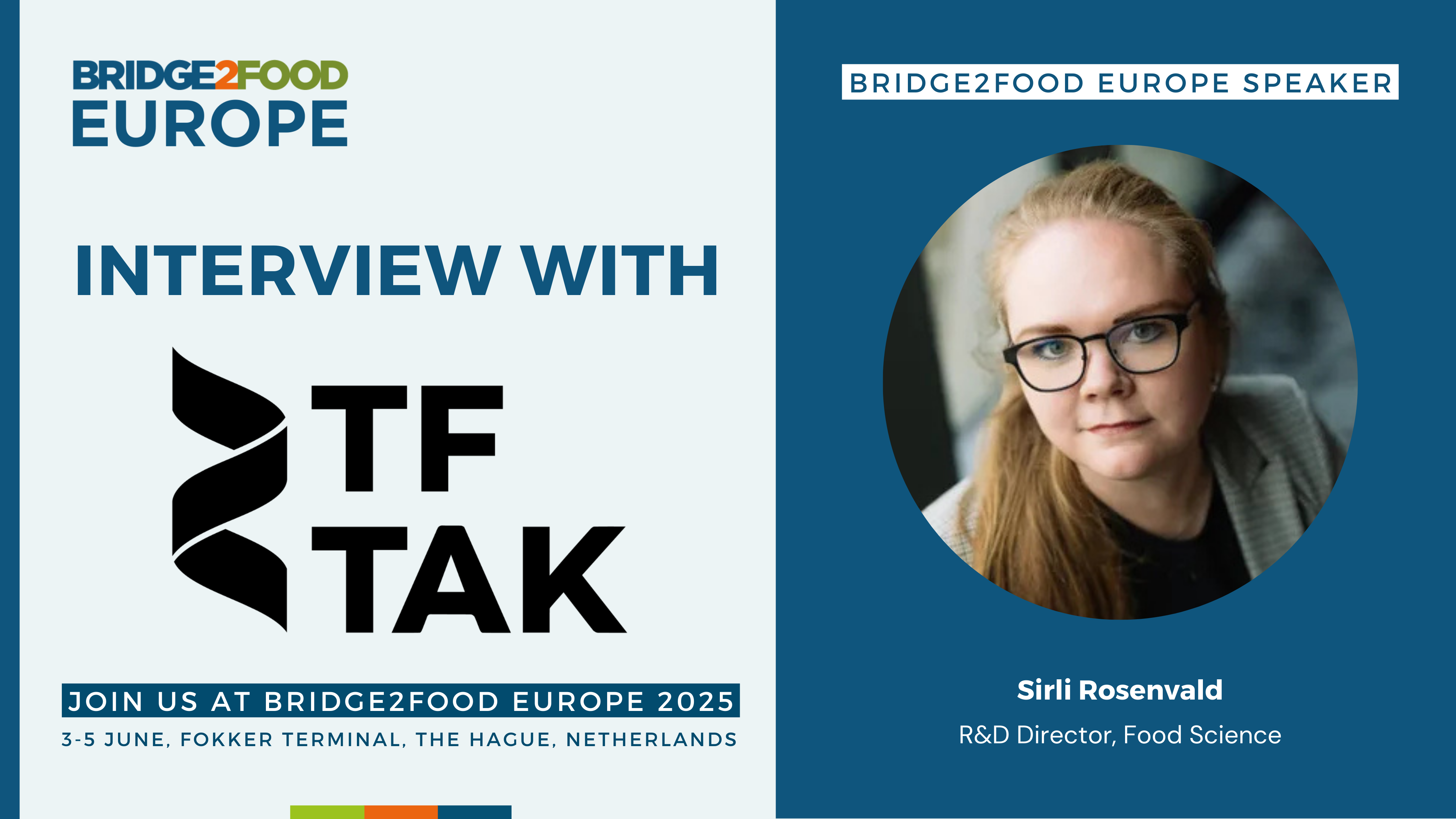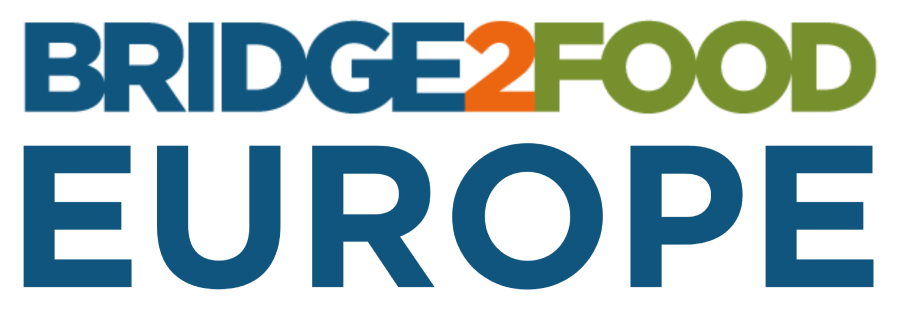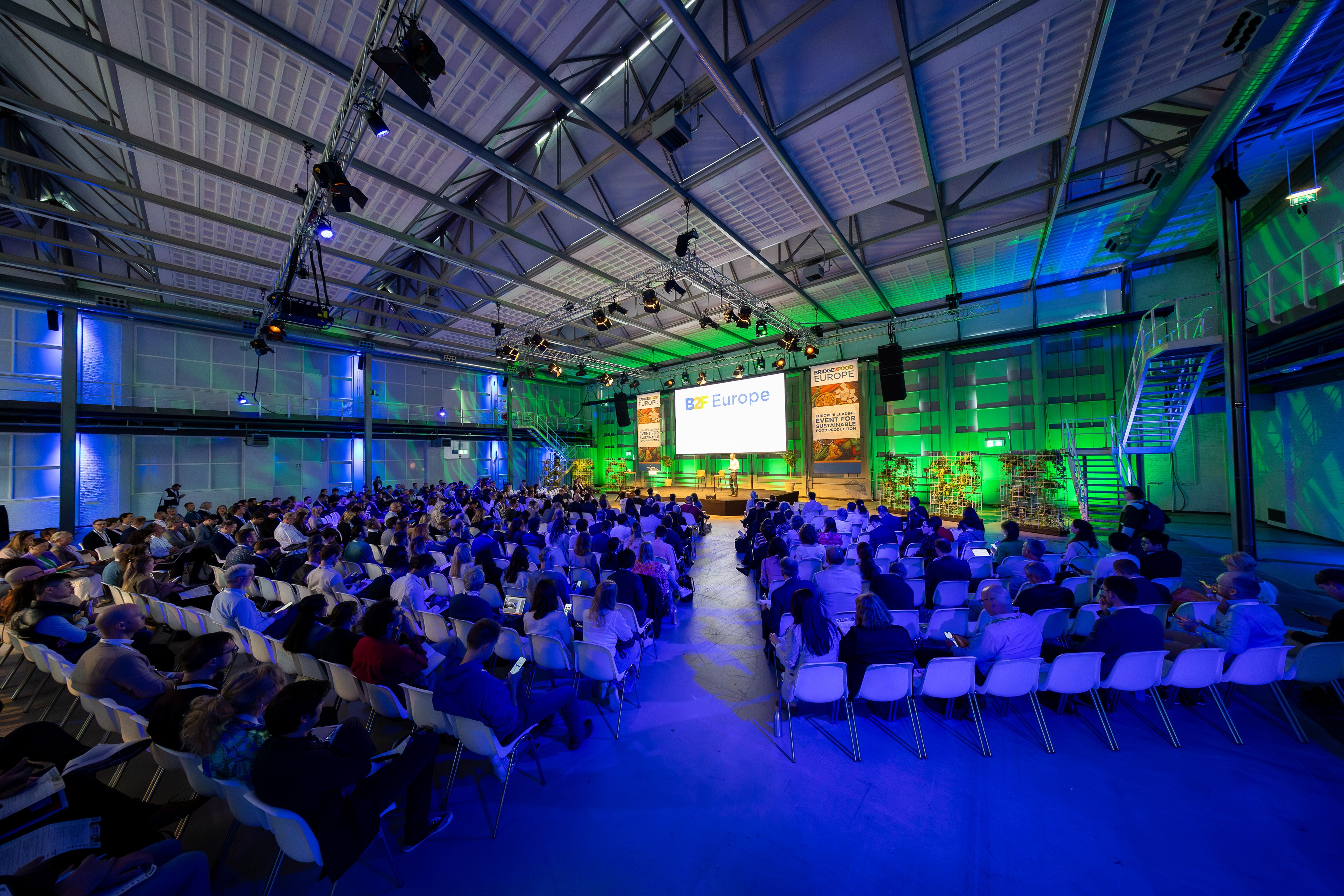

We’re excited to have TFTAK at Bridge2Food Europe 2025! Can you share what makes this event a valuable opportunity for your team and why you have decided to join us?
Bridge2Food Europe 2025 offers a great platform for TFTAK to connect with industry leaders, researchers, and innovators in the alternative protein sector. This event aligns perfectly with our mission to accelerate sustainable food production through cutting-edge technologies.
For us, it’s an opportunity to showcase our latest advancements, engage in high-impact collaborations, and stay at the forefront of sustainable food innovation. Last year we had an amazing event introducing our pea-based salmon fillet that was very well received.
TFTAK provides cutting-edge research and development support for companies.
Can you share some of the key benefits businesses gain from collaborating with TFTAK and how it helps accelerate product development?
TFTAK operates at the intersection of science and innovation, helping companies turn groundbreaking ideas into commercially viable products. Our expertise spans from ingredient functionality and fermentation science to sensory optimisation and process engineering.
At Bridge2Food Europe 2025, TFTAK will explore hybrid dairy and its role in a more sustainable food system. How do you see this space evolving?
The hybrid dairy space is poised for significant growth (CAGR 7.4%) as consumers increasingly seek sustainable, nutritious, and diverse food options. Hybrid products combine the best attributes of dairy and plant-based ingredients, offering improved taste, texture, and nutritional benefits.
As technology advances, we expect to see more sophisticated blends that address environmental concerns while meeting consumer preferences for great sensory experiences. A hybrid approach could be the solution to lower the environmental impact of the dairy industry providing products that are a greater fit for mass consumption while bringing environmental and nutritional benefits.
TFTAK is committed to contributing to this evolution by developing innovative solutions that support sustainable food systems.

TFTAK has been driving advancements in alternative proteins, plant-based dairy, and fermentation.
Can you tell us a little bit about some of the most exciting innovations your team is currently working on?
TFTAK is currently driving several exciting innovations in alternative proteins landscape:
- One of our key projects involves dairy hybrid developments that we are showcasing in this year´s summit.
- We are actively leveraging fermentation to improve the taste and nutritional properties of legume-based proteins which would support the uptake of plant-based protein products.
- We are working with high-throughput strain optimisation for precision fermentation, which aims to reduce costs and timelines in developing specialty food ingredients.
There are of course a lot of different ongoing developments in the areas of side-stream valorisation and technologies for meat and seafood alternatives improving the taste and texture and focusing on cost and scalability.
Taste, texture, and sustainability are key to consumer acceptance of hybrid dairy.
Can you share some recent TFTAK breakthroughs that are helping improve these aspects?
Cheese remains to be one of the most challenging categories in this space with its complexity, variability, and indulgent taste. One of our key focus areas is adapting traditional EDAM cheese-making technologies to facilitate the incorporation of plant proteins.
We are actively working on:
- Selecting the most suitable plant-based proteins that can complement dairy components while maintaining the characteristic taste and mouthfeel of traditional cheese.
- Optimising key processing parameters such as temperature control and rennet activity to ensure proper curd formation and structure. This precision minimises graininess or brittleness, delivering a smooth, cohesive texture.
- Investigating cheese maturation and starter culture selection, which are crucial for developing the desired flavor complexity and improving overall quality. Our team is screening and tailoring microbial cultures to enhance flavour development during maturation.
- Addressing technological challenges that impact production efficiency and cost, including minimising losses during production to enhance sustainability and affordability.
These breakthroughs ensure that hybrid dairy products deliver on consumer expectations without compromising on quality or sustainability.
TFTAK works closely with industry partners to drive innovation in food science and biotechnology.
What partnerships and collaborations are you looking to forge at Bridge2Food Europe 2025?
At Bridge2Food Europe 2025, TFTAK is eager to forge partnerships with industry leaders, startups, and research institutions that share our vision for sustainable food innovation.
We are interested in collaborating with alternative protein companies starting from ingredient providers up to consumer brands. These partnerships will help to accelerate the development of new technologies and products, ensuring they meet the evolving needs of consumers and the environment.
We really appreciate your insights. We’re looking forward to welcoming TFTAK to Bridge2Food Europe 2025. Any last remarks before we see you there?
We are thrilled to participate in Bridge2Food Europe 2025 and look forward to engaging with fellow innovators and industry experts. We believe that by working together, we can create a more resilient and environmentally conscious food industry that benefits both consumers and the planet.
I encourage everyone to get in touch even before the event to catch up with me or make an acquaintance—and definitely stop by the TFTAK booth at the summit to taste some of these excellent hybrid-dairy samples. See you there!


